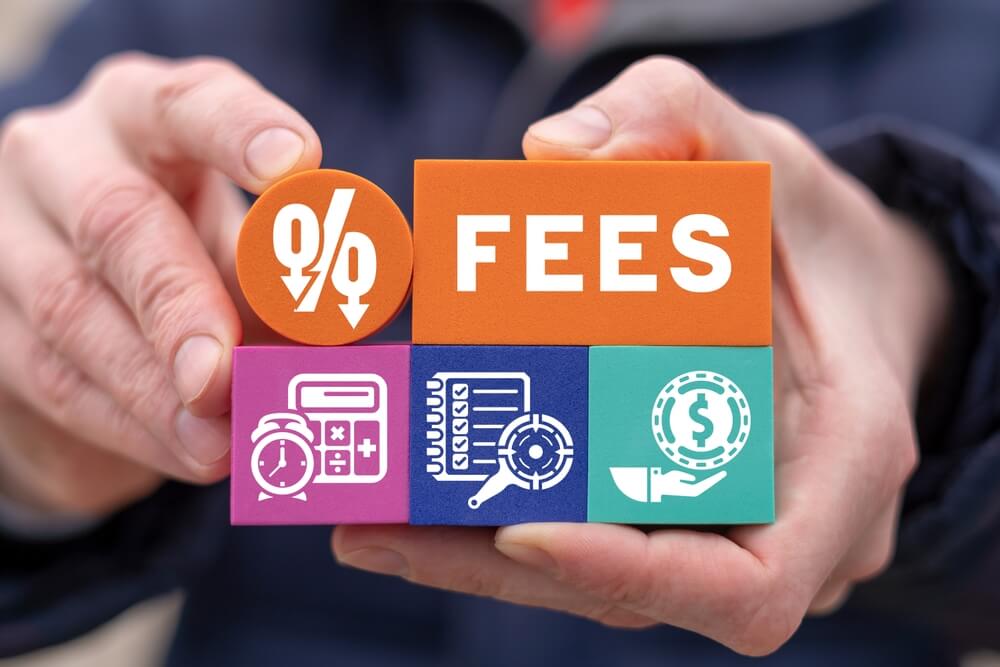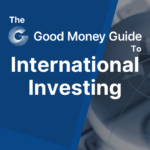eToro makes money through commission on trades, widening bid/offer spreads, FX fees when you deposit funds, withdrawal charges and keeping interest on the funds in your account. In this guide, I will explain how eToro makes money in each of those ways and if there are any cheaper alternatives.
As eToro prepares to become a publically traded company in the US via an IPO it reported $639 million in revenue in 2023, with a modest increase in funded accounts from 2.8 million in 2022 to 3 million in 2023.
Overall that revenue split can be divided in to eToro earning the most money from equities trading which accounted for 48% of the firm’s commission income in 2022, commodity spreads accounted for 27% of the total, cryptocurrencies made up 19% of commissions and FX trading accounted for another 6.0%.
Although eToro as eToro recently launched in the US, I suspect cryptocurrency revenue will be higher when the next set of results are released.
- Related guide: How to make money on eToro.
Here is a breakdown of how eToro earns money from it’s customers:
Commissions and Spreads
According to recent press releases eToro earned $631.0 million of commissions or spreads in 2022, that figure was below 2021’s commission levels but + 5.0% above those seen in 2020.
eToro earns money out of each transaction its clients make in CFDs, cryptocurrencies, equities and other instruments, and it does so through the bid-offer spread, that’s the difference between the price at which you can buy, or sell an asset.
The spreads that eToro charges vary by product, for example, if you trade the US Dollar Index you will 0.004 points of spread, whilst if you trade in the Nasdaq 100 index there is a spread of 2.40 points, and on the Niikei 225 index a spread of 10 points.
Trading in CFDs over stocks and ETFs attracts a spread of 0.15% of the underlying price. Whilst a trade in EURUSD has a spread of 1 pip.
- Related guide: What is a pip in trading?
eToro’s pricing is very good for US stocks as the bid/offer should be the same as the underlying market. However, for UK shares the bid/offer is widened by 0.15%. This is more than most other trading platforms. For instance, IG, Spreadex and CMC Markets charge 0.1%, whilst Interactive Brokers charges 0.02% and Saxo Markets 0.05%.
Interest uninvested money in client accounts
eToro does pay interest on uninvested cash but not as much as it earns from having it there. So eToro makes money by paying between 1% to 4.3% interest but receiving up to 4.75% interest.
You can see from the below table that eToro earns more in interest from smaller accounts, up to potentially 3.75%. So if there is $1,000,000 unvested cash in accounts that have less than $10,000 in them, eToro could potentially earn $37,500 from that.
| Account Balance | Interest rate |
| $250,000 | 4.30% |
| $50,000 | 4% |
| $25,000 | 3% |
| $10,000 | 1% |
CFD Overnight Financing
eToro charges CFD overnight financing by adding the relevant interest rate benchmark plus 6.40% per annum. For UK or Sterling-denominated CFDs, the benchmark is the Sonia 1-month index, and for CFDs in US Dollars eToro uses the SOFR l-month benchmark. This is very high compared to other brokers.
eToro is very expensive for holding CFD positions overnight. You can see in our CFD broker comparison tables that eToro charge 6.4% over the standard UK SONIA interest rate. Where as the industry standard from brokers like IG, Pepperstone and Saxo Markets is 2.5%. Interactive Brokers is the cheapest as they only charge 1.5% +/- SONIA.
Foreign exchange fees
FX conversion fees are levied at 0.1% on top of the underlying FX bid-offer spread. eToro also charges 0.5% when you deposit funds on account by converting it to USD from GBP.
eToro is about average for their FX conversion fee. however, the downside is that you can only trade in USD, which means you HAVE to convert your money into dollars. You have no control over it. You also have to convert GBP into USD if you are trading UK stocks. Which is daft, becuase it’s an added expense. it was ok when eToro absorbed your 0.5% stamp duty charge, but you now have to pay that. Which means that if you deposit £1,000 to buy UK shares you will be charged 1%.
All brokers have to charge stamp duty, but you can see on our US stock investing comparison tables that traditional investment platforms like Hargreaves Lansdown and Interactive Investor are more expensive for smaller deals (around 1%) the exchange rate mark-up drops to 0.25% for larger deals.
Interactive Brokers remains the cheapest with an FX conversion mark-up of online 0.02%.
- Top Tool: Calculate FX Conversion Mark-Ups
eToro is a multi-asset investment platform. The value of your investments may go up or down. Your capital is at risk.
61% of retail investor accounts lose money when trading CFDs with this provider. You should consider whether you can afford to take the high risk of losing your money

Richard is the founder of the Good Money Guide (formerly Good Broker Guide), one of the original investment comparison sites established in 2015. With a career spanning two decades as a broker, he brings extensive expertise and knowledge to the financial landscape.
Having worked as a broker at Investors Intelligence and a multi-asset derivatives broker at MF Global (Man Financial), Richard has acquired substantial experience in the industry. His career began as a private client stockbroker at Walker Crips and Phillip Securities (now King and Shaxson), following internships on the NYMEX oil trading floor in New York and London IPE in 2001 and 2000.
Richard’s contributions and expertise have been recognized by respected publications such as The Sunday Times, BusinessInsider, Yahoo Finance, BusinessNews.org.uk, Master Investor, Wealth Briefing, iNews, and The FT, among many others.
Under Richard’s leadership, the Good Money Guide has evolved into a valuable destination for comprehensive information and expert guidance, specialising in trading, investment, and currency exchange. His commitment to delivering high-quality insights has solidified the Good Money Guide’s standing as a well-respected resource for both customers and industry colleagues.
To contact Richard, please see his Invesdaq profile.




